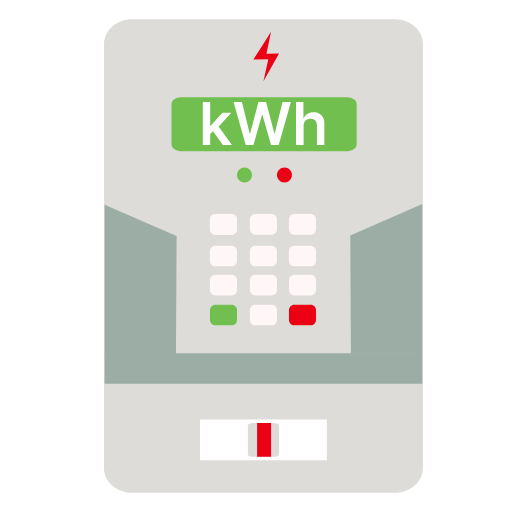About Fuel Consumption Calculator
Understanding MPG: A Comprehensive Guide to Fuel Efficiency in Cars
Miles per gallon (MPG) is a crucial metric for assessing the fuel efficiency of vehicles. It plays a significant role in determining the cost of operating a car, helping consumers understand which models offer the best efficiency and savings. In this article, we will explore what MPG is, how it impacts fuel economy, and what constitutes good MPG for different types of vehicles.
What Does MPG Mean in Cars?
MPG, or miles per gallon, measures how effectively a vehicle uses fuel. It indicates the distance a car can travel on a single gallon of fuel, helping consumers compare the fuel efficiency of different vehicles. For example, if one model achieves 50 MPG while another reaches 60 MPG, the latter can drive an additional 10 miles on the same amount of fuel. This difference highlights the importance of MPG in evaluating a car's overall operational costs, assuming both vehicles use the same type of fuel.
The Importance of Fuel Economy
When shopping for a new vehicle, fuel economy is a critical factor to consider. Gasoline expenses are a recurring cost, and selecting a more fuel-efficient car can lead to significant savings over time. MPG is the standard metric used to evaluate fuel economy, and understanding how it works can help consumers make informed choices when selecting a vehicle.
How is MPG Calculated?
The calculation of MPG is based on official fuel efficiency tests conducted using the Worldwide Harmonized Light Vehicle Test Procedure (WLTP). This protocol includes laboratory testing that simulates real-world driving conditions, ensuring accurate fuel economy estimates. Most modern vehicles display their current MPG on the driver's dashboard or infotainment system.
To calculate your vehicle's MPG manually, you can reset the trip computer when filling up with fuel. After driving, refill the tank and note the number of gallons used. Divide the miles driven by the gallons consumed to determine your car's MPG for that trip.
What is Considered Good MPG for Cars?
Determining what constitutes "good" MPG can vary based on several factors, including the type of vehicle, the fuel used, and driving conditions. While many gasoline-powered cars achieve more than 30 MPG, hybrid and electric vehicles typically offer the best fuel efficiency. Good gas mileage means using less fuel to cover more distance, and it's expressed in MPG.
For instance, if a vehicle has a rating of 30 MPG, it can travel 30 miles on a gallon of fuel. Generally, cars achieve better MPG on highways compared to city driving due to lower speeds, reduced idling, and fewer stops. On average, most vehicles get approximately five more MPG on the highway than in urban settings.
Which Cars Offer the Highest MPG?
As fuel prices continue to rise, consumers may be looking for ways to cut costs. Thankfully, there are several fuel-efficient vehicles available that are not solely electric. Among the most fuel-efficient gas-powered cars is the Hyundai Ioniq Blue, boasting a remarkable combined EPA rating of 59 MPG, with the Blue trim achieving 60 MPG on the highway.
The Toyota Prius, while not for everyone due to its performance characteristics, has set benchmarks in fuel efficiency. Its design focuses on economy rather than speed but still delivers impressive MPG.
The Elantra Hybrid offers a balance of style and fuel efficiency, with the Blue model reaching a combined EPA rating of 54 MPG and 56 MPG on the highway.
Notable Hybrid Vehicles
The Hyundai Sonata Hybrid is another strong contender in the hybrid market, featuring a modern interior, extensive standard amenities, and a smooth driving experience. Toyota continues to lead in hybrids, offering several models, including the Camry Hybrid, known for its spacious interior and impressive fuel efficiency.
The Honda Insight merges environmental consciousness with style, providing a comfortable ride and luxurious interior. Similarly, the Toyota Corolla Hybrid remains a popular choice, known for its reliability and fuel-saving features.
Kia’s Niro stands out as a compact SUV, providing excellent value and practicality, with the Niro hybrid achieving a combined EPA rating of 50 MPG. Additionally, the Niro plug-in hybrid and electric variant cater to various consumer needs.
The Honda Accord combines reliability with performance, offering a user-friendly infotainment system, smooth ride, and competitive MPG ratings.
Finally, the Lexus ES 300h fills a niche for luxury sedans, delivering a serene ride and efficiency. It offers a combined EPA rating of 44 MPG, making it the most fuel-efficient non-plug-in luxury vehicle on the market.
The Financial Impact of MPG on Car Ownership
Fuel efficiency significantly influences the total cost of operating a vehicle. Over time, even a small difference in MPG can lead to substantial savings. By understanding MPG and fuel economy, consumers can make more informed decisions when purchasing a vehicle, ensuring they choose one that not only fits their lifestyle but also minimizes fuel costs. Whether you opt for a hybrid, electric, or traditional gasoline-powered vehicle, keeping MPG in mind will help you navigate the rising costs of fuel and ensure economical driving for years to come.




























